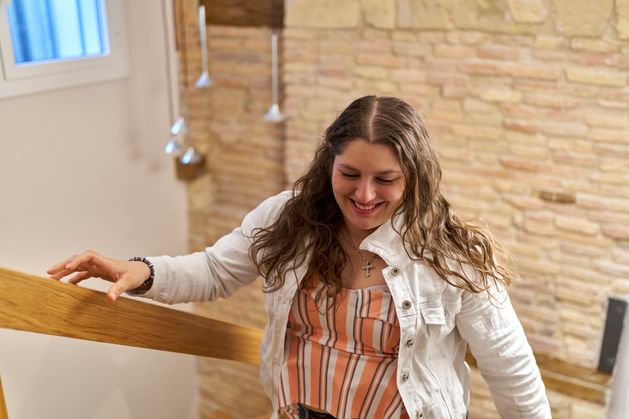Fitness
Why short bursts of activity or ‘exercise snacks’ could help you reduce the health risks of sitting down all day

New study advocates short bursts of intense activity to improve your health and fitness
Most adults in Ireland spend at least five hours a day in sedentary position and for those whose job demands sitting, it is even longer – not counting the time spent in front of the television at night.
And fewer than half of adults in Ireland are getting enough exercise.
However, the International Congress on Obesity in Sao Paolo, Brazil was told yesterday that fitting in “exercise snacks” – very short bursts of relatively intense activity separated by intervals of hours – could be a way to reduce sedentary time and improve fitness.
They are also a way of getting movement for people living with obesity and a range of chronic diseases that may make a regular exercise plan difficult.
Associate Professor Bruno Gualano of the Centre for Lifestyle Medicine at the University of Sao Paulo said: “Examples include stair climbing and short, intense cycling bouts, which have shown benefits for cardiorespiratory fitness and vascular health in various studies.
“For instance, hourly stair-based exercise snacks improved vascular health in a trial with healthy males, while another study demonstrated their feasibility and benefits for those who are overweight or living with obesity.
“However, many people may struggle to implement exercise snacks owing to practical reasons, such as bus drivers or people who have physical disabilities or low exercise capacity, such as older individuals.”
Current guidelines recommend 150-300 minutes of moderate-to-vigorous physical activity weekly but, “many struggle to meet these targets”, Prof Gualano said.
“To mitigate the negative impacts of prolonged sitting, ‘exercise snacks’ are proposed as a practical alternative. These are brief, intense bursts of activity – one minute or less – which can be more time-efficient than traditional exercise regimes.”
Exercise snacks could be of most benefit to people who would struggle to fit into what would be considered a regular fitness regime.
He added: “The potential benefits of exercise snacks include reduced sedentary time and improved metabolic health, and these benefits may be achieved even with unstructured, very light activities, which do not fit exactly in the category of exercise snacks.
“Indeed, further research is needed to understand the long-term efficacy, safety, and applicability of distinct physical activity strategies of breaking-up sedentary time across different populations.
“This strategy can be potentially applied everywhere; at home or in the office, as it does not involve any specific equipment or devices,” Prof Gualano said.
The HSE said that higher levels of sedentary behaviour are associated with cardiovascular disease, cancer and type-2 diabetes.
“Replacing sedentary time, where possible, with activity, even light intensity activity… is also strongly advised to protect health.”
“Replacing this sedentary time, where possible, with activity, even light intensity activity is strongly advised to protect health,” a spokesperson said.










